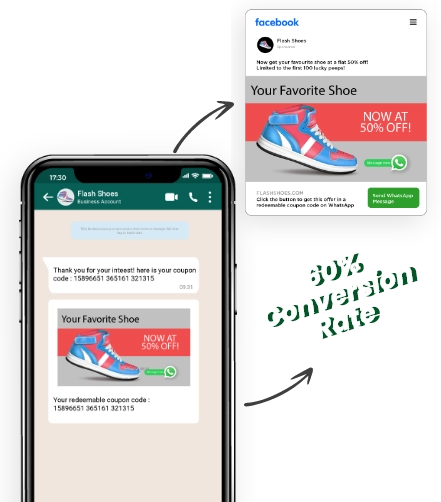When life gives you great business, make it greater by choosing a right Cloud Contact Center.
Setting up Cloud Contact Center services is crucial as it empowers businesses to deliver exceptional customer service, optimize communication, and achieve operational efficiency.
Cloud-based Contact Center are one-stop solutions that offer flexibility, scalability, and cost-effectiveness, enabling businesses to adapt quickly to changing customer demands and market trends.
With a Cloud Contact Center, companies can provide multi-channel support, including voice calls, emails, chat, and social media, ensuring seamless customer interactions across various touchpoints.
Additionally, advanced features like IVR service number, call routing, and real-time analytics enhance call handling and agent performance.
Moreover, cloud-based infrastructure ensures data security, compliance with regulations, and disaster recovery measures, safeguarding sensitive customer information.
By embracing Cloud Contact Center services, businesses can elevate their customer experience, streamline operations, and gain a competitive edge in today’s dynamic market landscape.
Here’s How to Choose the Right Cloud Contact Center – A 16-Step Guide
These 16 step guide help you to choose a right cloud contact center for your business

Step 1: Assess Your Needs
Kickstart the process by evaluating your business’s unique requirements. Ask yourselves ‘why is CcaaS necessary?’ Identify the specific features and functionalities you need in a cloud contact center, such as call routing, IVR system, CRM integration, multi-channel support, and analytics. Also, Whatsapp API for Business is the most effective communication method to cater to customer needs 24/7.
Step 2: Understand Scalability
Stay ahead of the curve by considering your business’s growth potential and seasonal fluctuations in call volume. Choose a right cloud contact center that can easily scale up or down to accommodate your changing needs. In future, if you aim to integrate toll-free number service and other communication tools to your CRM it is important to consider scalability beforehand.
Step 3: Data Security and Compliance
Safety should always be your top priority. Especially more when handling sensitive customer information.
Ensure that the cloud contact center you choose adheres to industry-standard security protocols and complies with relevant data protection regulations. Prioritize data protection over everything.
Step 4: Ease of Integration
If you already have existing communication tools and systems in place, opt for cloud contact center solutions that can seamlessly integrate with your current infrastructure, such as CRM software, help desk solutions, and other business applications.
Step 5: User-Friendly Interface
A user-friendly interface is essential for easy adoption and minimal training time for your agents. Look for a cloud contact center with an intuitive and customizable interface.
Step 6: Reliability and Uptime
Check the track record of the cloud contact center provider in terms of uptime and reliability.
Downtime can significantly impact your customer service and business operations. A lot of real-time cases prove that downtime can lead to grave consequences. So it is important to factor in the uptime and reliability factors.
Step 7: Customer Support and Training
Excellent customer support is crucial, especially during the onboarding process and in case of any issues. Ensure that the provider offers adequate training and support for your team.
Step 8: Pricing and Cost Transparency
Review the pricing models offered by different cloud contact center providers. Look for transparency in pricing and be aware of any hidden costs. However, make shrewd decisions by not relying on the price over features.
Step 9: Trial Period
Consider opting for a trial period or a demo to test the features and performance of the cloud contact center before committing to a long-term contract. Hands-on experience will help you gauge how well the cloud contact center fits your requirements and meets your expectations. MyOperator’s Cloud based Contact Center service offers a free one-month trial period for business with access to all features, do check it out.
Step 10: Read Reviews, Feedback and Get References
Read reviews and testimonials from other businesses that have used the same vendor you are considering. For better foresight, ask the provider for references from their existing clients to gain insights into their customer experiences.
A well-established and reputable vendor is more likely to provide reliable services and excellent support because they have “been there, done that!”
Step 11: Future Proofing
Choose a cloud based contact center that stays up-to-date with technological advancements. Ensure that the provider is actively investing in innovation to future-proof your communication infrastructure.
Technology is constantly evolving, and you want a solution that can keep up with the pace of change.
Step 12: Evaluate Reporting and Analytics
To continuously improve your customer service, make sure the cloud contact center offers robust reporting and analytics capabilities.
Access to comprehensive data and insights about call metrics, agent performance, and customer interactions can help you identify areas for improvement and optimize your operations.
Step 13: Mobile Accessibility
If it does not support smart mobiles, then it’s not smart enough! Having a cloud contact center that supports mobile accessibility is essential.
Check whether the provider offers mobile apps or browser-based access, allowing your agents to stay connected and provide assistance on-the-go.
Step 14: Customization Options
Every business has unique requirements, so look for a cloud contact center that offers customization options. The ability to tailor the system to your specific needs ensures that it aligns perfectly with your business processes and enhances efficiency.
Step 15: Disaster Recovery and Data Backups
Ensure that the cloud contact center provider has robust disaster recovery measures and data backups in place. This safeguard ensures that your critical customer data remains secure and accessible, even in unforeseen circumstances.
Step 16: Long-Term Partnership
Selecting a cloud contact center is not just a one-time purchase; it’s a partnership for your business’s future success. Choose a provider that shares your vision, permeable to inputs and offers long-term support to ensure a fruitful collaboration.

Final Thoughts
The comprehensive step-by-step guide to choosing the right Cloud Contact Center emphasizes the importance of understanding business needs, scalability, data security, user-friendliness, and future-proofing.
By carefully evaluating these factors, businesses can make an informed decision that aligns perfectly with their customer service goals and communication requirements.
If you are a scaling business enterprise or a startup looking to integrate Cloud Contact Center service, explore MyOperator’s VoIP based Cloud Contact Center service for an ideal solution.
Choosing MyOperator’s VoIP Cloud Contact Service not only meets the criteria outlined in the guide but also guarantees a partnership that elevates your customer service and drives business success.





